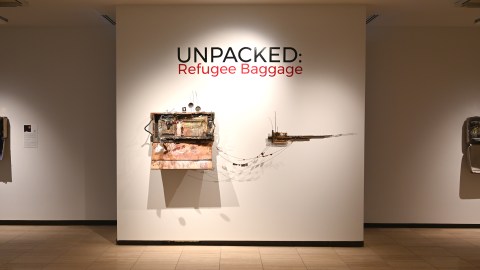I’ve written about the trend for cities to establish PILOTs (Payments in Lieu of Taxes) for nonprofit organizations. These payments (nominally voluntary) can be seen as a civilized way for museums to be good neighbors, supporting their community in economically troubled times. However, PILOTs may set the stage for a more formal erosion of tax exempt status. Unfortunately, many such examples are cropping up. Here are a few scanning hits that I hope don’t presage such a trend:
In Rhode Island
Newly elected Governor Chafee has just proposed a 6% sales tax on all tickets to performances and exhibitions, including those sold by museums, historical sites, zoos, parks, art galleries and libraries. It would also institute a 1% sales tax on items sold to charitable, educational or religious organizations. (Including, of course, museums.)
In Vermont
At the end of last year’s legislative session, lawmakers introduced a provision in state’s Miscellaneous Tax Bill that created a new 6 percent sales tax on all performances for non-profit groups that take in more than $50,000 in ticket sales annually. It’s set to go into effect on April 1. This could be seen as a values statement about nonprofits as much as a fiscal decision, as the new tax will only raise about $650,000 this year (less than one-tenth of 1 percent of the general budget).
In Louisiana
A report commissioned from the nonprofit government issues firm BGR reviewed nonprofit property tax exemptions in Orleans Parish. The report concluded that eliminating the exemption would significantly increase government revenues or (in a revenue-neutral scenario) at least reduce overall property tax rates. It notes “there are some compelling arguments for eliminating the nonprofit exemption altogether and making property taxes a cost of doing business.” BGR presents recommendations for a new framework for non-profit property tax exemptions, including requiring a nonprofit benefiting from an exemption to demonstrate it “relieves the government of a burden or provides important public benefits.” Can museums demonstrate they are performing a function that government would otherwise need to take on? Hmmm. Probably not. So that leaves us arguing over what constitutes “important public benefits.” In this political climate, I don’t feel too sanguine about the outcome of that debate.
And the “public benefits” provision in the BGR report is a troubling echo of the Boston PILOT report which proposed charging nonprofits for the city services they receive, backing out the monetized value of the benefits the nonprofit provides to the city. How do we place a dollar value on the educational and social experiences we provide our communities, not to mention our roles as preservers of cultural, artistic, and scientific heritage? (That’s a serious question—I would love you to send examples of researchers or organizations attempting to do so.)
And perhaps these proposals point out the strategic downside of touting museums as economic drivers. It may become too easy to seize on that number (a museum’s putative contribution to tourism and local sales) as the quantified “benefit” factored into the tax debate.
Please write in to share news you spot that gives early hints on possible futures of nonprofit status. What actions can we, as a field and as individual organizations, take to stave off a future in which nonprofit museums are no longer tax-exempt?









Personally, I don't have a problem with the sales tax on admissions and performance tickets. We already collect sales tax on museum store sales. The property taxes, PILOT and loss of deductibility for charitable donations are far more frightening!
Carle Kopecky
In the Winter 2011 newsletter of the Association of Midwest Museums, the article "The Facts of the Matter: The Cultural Data Project Aims to Strengthen the Arts and Cultural Sector," written by Sarah Kowalski and Michael Keeler of the Cultural Data Project, talks about this exact issue. Kowalski & Keeler describe how in 2009 the Cultural Data Project helped advocates in Pennsylvania make a case against suggested legislation that would tax nonprofit arts and cultural organization on their ticketing and membership revenues.
"Thankfully, the CDP had been up and running in PA since 2004 – so advocates had solid facts on their side when they set out to make their case against the new tax. They were able to prove that the revenue from the tax would be much smaller than legislators were hoping, and not worth the costs to the state's already strapped nonprofits. The tax wad defeated, and the nightmare never became a reality."
Unfortunately, the CDP is only operating in Maryland, California, Illinois, Ohio, Massachusetts, New York, and Michigan. Looks like more states need to get aboard this project. If Rhode Island, Vermont, and Louisiana had the CDP in place, would this issue loom so large for them?
How about first of all: cut bloated government at all leverl beginning with the Feds where there are so many useless, overlapping, useless, moronic department, divisions, agencies, commissions, panel and god knows what else. Request for a complete listing of Federal entities consistently go ignored or poo-pooed. Next in the bloated line are the states.
Trim those two alone and all warfare taxes on productivity, creativity and entrepreneurship could be supplanted with a simple, straight forward & understandable consumption tax. Make everyone some sort of stakeholder—even if it's a nominal $1 a year.
Regretfully the Founders biggest blunder was not encoding into the U.S. Constitution rigid and strictly limits on U.S. Senators & Representative. We need citizen representative go to and leave Washington, D.C. and return to making an honest living in actually contributing to free and open market economy.l